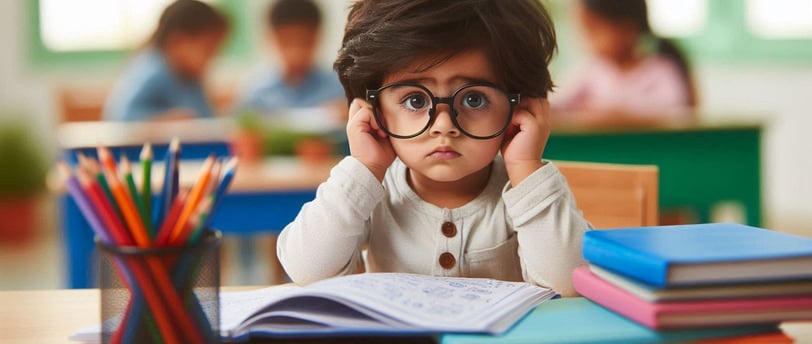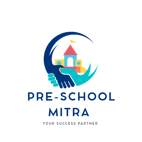Play Group Syllabus 2025 in India
Early childhood education is a critical phase, and having a well-structured preschool syllabus is key to fostering holistic development in young learners. For parents and educators alike, understanding the essential concepts and skills for children aged 2-3 years is essential. Here's a comprehensive look at what a Play Group syllabus for 2025 should encompass, including literacy, numeracy, environmental studies (EVS), and art & craft.
Ankit Shukla
12/1/20243 min read


In India, early childhood education is a critical phase, and having a well-structured preschool syllabus is key to fostering holistic development in young learners. For parents and educators alike, understanding the essential concepts and skills for children aged 2-3 years is essential. Here's a comprehensive look at what a Play Group syllabus for 2025 should encompass, including literacy, numeracy, environmental studies (EVS), and art & craft.
1. Language and Literacy Development
Language Development:
Vocabulary Building: Children at this age rapidly expand their vocabulary, learning the names of common objects, animals, fruits, and vegetables. Enhancing their ability to communicate effectively.
Picture Talk: Engaging children in discussions about pictures helps develop their listening and speaking skills. This activity encourages them to describe what they see and express their thoughts.
Pre-Reading Skills:
Alphabet Recognition: Introduction to letters and their sounds lays the groundwork for reading. Children begin to recognize and associate letters with corresponding sounds.
Rhymes and Stories: Recitation of simple rhymes and storytelling sessions help develop a love for language, improving their listening skills and comprehension.
Pre-Writing Skills:
Fine Motor Skills: Activities like tracing lines, patterns, and simple shapes help develop the fine motor skills necessary for writing. Practicing with crayons and large pencils can enhance their pencil grip.
2. Numeracy Skills
Number Recognition and Counting:
Basic Numbers: Teaching numbers from 1-10 using visual aids and counting objects makes learning fun and interactive.
Counting Activities: Engaging children in counting toys or everyday objects helps them grasp the concept of numbers.
Basic Mathematical Concepts:
Shapes and Colors: Recognition of basic shapes (circle, square, triangle, rectangle) and primary colors through various activities helps in understanding fundamental geometry and color identification.
Sizes and Comparisons: Concepts like big-small, tall-short, and heavy-light are introduced to develop their understanding of size and measurement.
Pattern Recognition:
Simple Patterns: Introducing children to repeating patterns using blocks, beads, and stickers helps develop their logical thinking and problem-solving skills.
3. Environmental Studies (EVS)
Understanding Self and Family:
Body Parts: Learning about different body parts and their functions is a fundamental aspect of self-awareness.
Family Members: Understanding the roles and relationships within a family helps children build their social and emotional skills.
Exploring Surroundings:
Home and School Environment: Familiarizing children with different rooms, common objects at home, and the school environment helps them feel secure and comfortable.
Community Helpers: Learning about various community helpers like doctors, policemen, and teachers builds awareness of societal roles.
Nature and Animals:
Animals Around Us: Identifying domestic and wild animals, birds, and insects helps children appreciate the diversity of living beings.
Plants and Trees: Basic knowledge of plants, flowers, and trees fosters an appreciation for nature.
Seasons and Weather:
Seasonal Changes: Understanding different seasons and appropriate clothing helps children adapt to their environment.
Weather Patterns: Basic concepts like sunny, rainy, and cloudy days are introduced to develop their awareness of weather changes.
4. Creative Arts and Crafts
Artistic Expression:
Free Drawing and Coloring: Encouraging creativity through coloring sheets and free drawing helps develop fine motor skills and artistic expression.
Themed Crafts: Simple crafts related to themes like jungle, transport, and community helpers make learning engaging and fun.
Craft Activities:
Button Craft, Cotton Pasting, and Leaf Pasting: These activities involve pasting buttons, cotton balls, and leaves to create textures and images, enhancing fine motor skills.
Paper Mosaic: Creating pictures by pasting small pieces of colored paper fosters creativity and precision.
Social Skills and Good Manners
Theme-Based Lessons:
Basic Etiquette: Teaching children to say please, thank you, and sorry instills good manners.
Sharing and Caring: Activities that promote sharing and caring for others help develop empathy and social skills.
Role Play:
Understanding Roles: Engaging in role play helps children understand the roles of various community helpers and fosters social interaction.
6. Physical Development
Gross Motor Skills:
Movement Activities: Jumping, hopping, running, and playing with balls help develop coordination and balance.
Obstacle Courses: Simple obstacle courses promote agility and physical fitness.
Fine Motor Skills:
Manipulative Activities: Building with blocks, threading beads, and using playdough enhance fine motor control.
Conclusion
Providing a well-rounded education for children aged 2-3 years involves a mix of structured learning and ample opportunities for play and exploration. An effective curriculum should cover all essential concepts, from language and numeracy skills to environmental awareness and creative arts.
At Preschool Mitra, we offer a comprehensive and engaging curriculum that meets these needs. Our innovative "1 Day 1 Book 1 Concept" simplifies learning and reduces the burden on young learners by focusing on one book per day that covers a single concept. This approach ensures a balanced and enjoyable learning experience, fostering curiosity and creativity.
Join us in making early education a delightful journey of discovery and growth! For more information, visit Preschool Mitra Curriculum and Books.
Contact Us
01, Tundla, Uttar Pradesh
India 283204
Phone: +91 7017808975, +91 8077440661
contact@preschoolmitra.in
Address
©Preschool Mitra 2025
